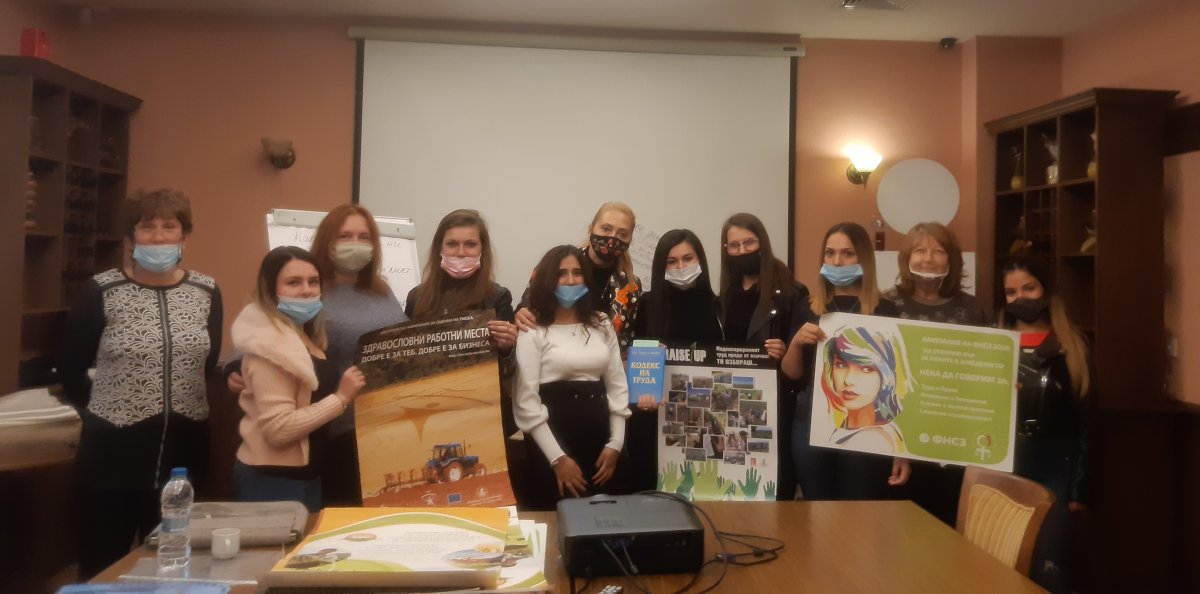This and other disturbing facts were shared at yesterday's final conference on the BRIGHT project, which took place in Rome.
Preparations have begun for a seminar within the BRIGHT project in Bulgaria
It will bring together stakeholders from 5 countries, representatives of institutions and NGOs in our country to build a working network in support of mobile workers from Bulgaria working in the field of agriculture in southern Italy.
Local Labor Mediators in Stara Zagora
Labor mediator trainings in Stara Zagora was completed successfully. Young ladies dusccussed together with their trainers Stanimira Hadjimitova and Valentina Vasilyonova an important issue as labor contracts, fake job applications, how to seek support in a foreign country, etc.
Jumpstart to the training for local labor mediators in Montana
On July 30, 31 and August 1, a training of local labor mediators on the BRIGHT project was held in Montana. It was attended by 17 women, including health mediators from 5 municipalities in Montana region, youth mediators, representatives of the Montana District Administration - specialists in regional development and gender equality, representatives of the Local Commission for Combating Trafficking in Human Beings, representatives of NGOs, the Municipal Council on Narcotic Substances and other institutions.
How does labor migration affect the Bulgarian economy?
The shortage of skilled labour[1] is one of the most severe constraints affecting economic growth in Bulgaria in recent years. This is a constantly recurring problem posed by employers’ organisations, and it gradually embraces all sectors of the economy and professions, but also different companies - from micro-enterprises to large companies. There are various reasons for this - a permanently deteriorating demographic picture, demotivation of a significant number of the working-age population (analysed in a study by the Friedrich Ebert Foundation and the Institute of Economics and International Relations in a survey in 2017), and the quality education and vocational training that is inadequate for the labour market.
This May Day call for rights for workers without borders - European Alternatives[1]
Just as the Covid-19 crisis has transformed the daily lives of most people across the planet, it has highlighted many of the traits of the socio-economic system that predated the virus but were very largely ignored. In particular, it has highlighted the precariousness of many of the most essential workers to the continued existence of society, those ensuring health and care, food cultivation and harvesting, goods delivery and waste disposal.








